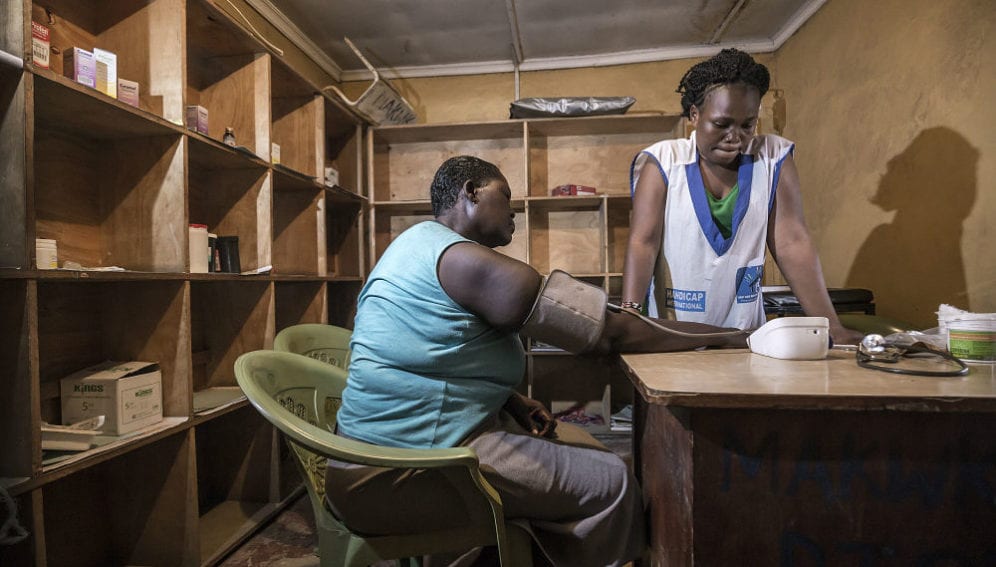Send to a friend
The details you provide on this page will not be used to send unsolicited email, and will not be sold to a 3rd party. See privacy policy.
African efforts to tackle the rising threat of cancer, diabetes and other non-communicable diseases is being hampered by a chronic lack of information, a WHO meeting has heard.
According to the WHO Africa region, deaths from these non-communicable diseases (NCDs) increased from 2.4 million in 2005 to 3.1 million in 2015.
The WHO adds that cancer, diabetes and other lifestyle-related diseases are on the rise because of sedentary lifestyles, tobacco use, physical inactivity, harmful use of alcohol and unhealthy diets.
“Information on NCDs is often incomplete and unreliable and is not available in a timely manner”
Steven Shongwe, WHO Regional Office for Africa
Steven Shongwe, the acting director of the WHO Regional Office for Africa’s department for tackling lifestyle-related diseases, tells SciDev.Net that many African countries have weak capacities to collect and analyse information.
“Information on NCDs is often incomplete and unreliable and is not available in a timely manner,” says Shongwe. “Information on NCD prevention and control is not integrated into national health information systems. Good surveillance and research will enable tracking of country responses to the rapidly growing burden of NCDs.”
Availability of data is important for full understanding of the burden and impact of lifestyle-related diseases and their risk factors, allowing policymakers to create and implement relevant policies to tackle the issues, Shongwe explains.

The WHO projected in a report released in 2016 that worldwide deaths from lifestyle-related diseases will increase to 44 million by 2020, an increase of 15 per cent from the 2010 estimate and about four million NCD-related deaths will occur in Africa by 2020.
According to Shongwe, the WHO created 14 monitoring indicators including national mortality data and national integrated lifestyle-related diseases action plans for time-bound commitments on lifestyle-related diseases including setting national targets for 2025 or 2030 by 2015.
“When an assessment of progress made in achieving these time-bound commitments was conducted in September 2017 using the progress monitoring indicators, it was found that most [African ] countries had made little or no progress,” says Shongwe. “No country from the African region achieved more than eight of the progress indicators.”
Shongwe adds that the evaluation of the situation and the way forward were discussed during the 68th session of the WHO Regional Committee for Africa in Senegal meeting last month (27-31 August).
Irene Kretchy, senior lecturer at the University of Ghana School of Pharmacy, tells SciDev.Net that many health facilities in Africa, particularly those in rural areas, lack state-of-the-art technologies to facilitate data collection.
"Many health facilities in Africa rely heavily on hard-copy patient records, which make it difficult to generate data on those suffering from lifestyle-related diseases," says Kretchy, who conducts research into lifestyle-related diseases such as hypertension and diabetes. "African governments need to set up electronic resources at health facilities to provide easy access to data for research into such diseases."Kretchy adds that having functional research units at health facilities can help generate evidence, which can persuade African governments to allocate adequate research funding to help address such diseases.
This piece was produced by SciDev.Net’s Sub-Saharan Africa English desk.














